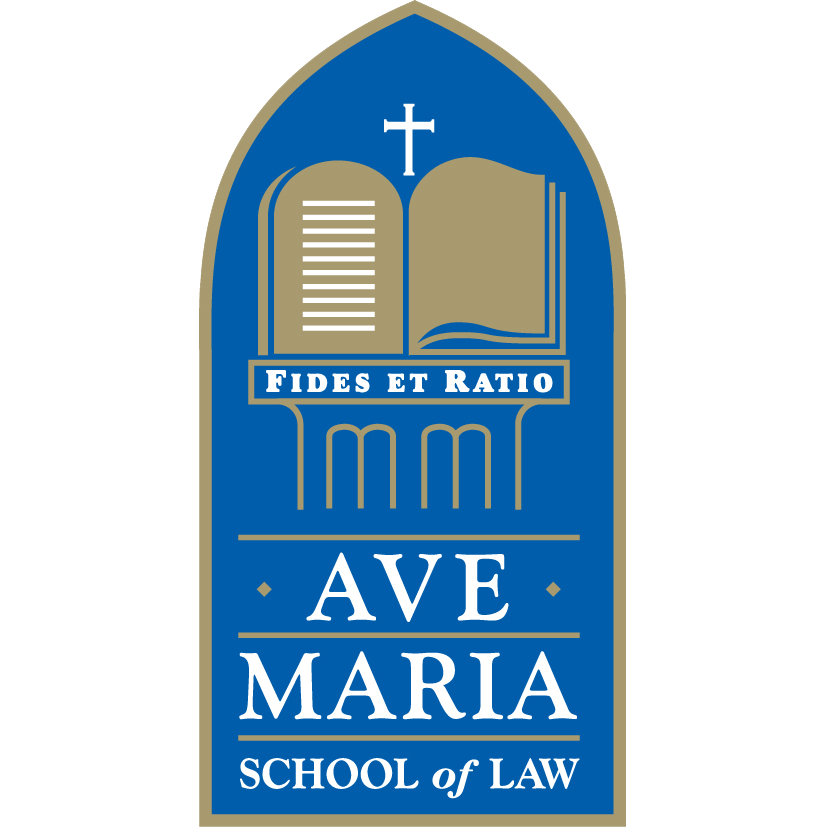ABA removes remedial actions requirements for Ave Maria School of Law

Finding that Ave Maria School of Law is now in compliance with an accreditation standard addressing admissions, the council of the ABA’s Section of Legal Education and Admissions to the Bar has removed requirements of specific remedial actions.
The council decision was recently posted on the Legal Education Section’s website. Public notice about the law school’s compliance with Standard 501(a) and 501(b) was first given in August 2016, after the council affirmed an accreditation committee finding that the law school was not in compliance with the standard.
Standard 501(a) requires that law schools must have sound admissions policies and practices that are consistent with the law school program’s mission and program objectives. Standard 501(b) states that a law school should only admit candidates who appear capable of completing a legal education program and being admitted to the bar.
According to the August 2016 council notice, interim monitoring of Ave Maria began in the spring of 2013. Remedial actions required included submitting a reliable plan to the section’s managing director by September 2016, supply the accreditation committee with admissions data and methodology, including factors considered besides LSAT scores and undergraduate GPAs.
Kevin Cieply, the Florida law school’s dean, did not respond to an ABA Journal request for comment. Based on Standard 509 Information Report information, which can be viewed here and here, the law school’s 25th percentile LSAT score was 141 in 2013, and it dropped to 139 in 2014. In 2016, the 25th percentile LSAT score was 143, according to the 509 Report for that year, and for 2017, the report showed that the 25th percentile LSAT had risen to 145.
“The ABA seems to have decided that schools should not be admitting significant numbers of extremely high-risk students, which I have defined as students with an LSAT of 144 or below, with correspondingly low grades,” David Frakt, a Florida lawyer and a frequent critic of the accreditation process, told the ABA Journal. “I assume that when Ave Maria submitted its reliable plan to improve their admissions profile that they promised to bring their bottom 25 percent up to 145. Now that they have done that, there is no need to continue the interim monitoring.”
In a December 2017 post at Faculty Lounge, Frakt wrote that various law schools had recently been found to be out of compliance by the ABA regarding admissions standards, and based on 509 Reports it didn’t appear that many of those law schools were raising their cut scores. Out of those schools, Atlanta’s John Marshall Law School had the highest LSATs, Frakt says, and Ave Maria is one point higher than John Marshall in the 75th, 50th and 25th percentiles.
“I would say that I am not at all surprised and that the ABA’s decision not only makes sense, but the data proves that these sanctions worked exactly as they should and caused the school to discontinue its exploitative admissions practices and get back into compliance with ABA standards,” Frakt wrote in an email.
In terms of bar exam results, Ave Maria’s pass rate for February 2017 was 57.9 percent, and 51.3 percent in July 2017, according to data released by the Florida Board of Bar Examiners. A total of 58 Ave Maria graduates sat for the Florida Bar in 2017, and 31 passed.
The law school had a higher pass rate for 2016, according to Florida Bar data that can be found here and here. Fifty-three Ave Maria Law graduates sat for the state bar that year, and 33 passed.
It’s likely that poor bar exam results were expected for the law school in 2016 and 2017, Frakt says, due to both classes’ LSAT scores and undergraduate GPA percentiles, “so I don’t think the poor bar results for those two years would be a reason to continue the monitoring of Ave Maria’s admissions standards,” he told the ABA Journal.
Tuition for entering 2018-2019 first-year students at Ave Maria is $39,950, according to its website. The 509 Report for 2017 states that the law school’s median LSAT score is 147, and the median undergraduate GPA is 3.16.
The school had a total of 241 students, 19 percent of whom received grants or scholarships for full tuition. 23 percent received half to full tuition in grants and scholarships, and 7 percent received grants and scholarships that added up to more than full tuition.
The law school’s class of 2016 had 63 members, 36 of whom had long-term, full-time jobs practicing law, according to the school’s 2016 employment summary. Two class members had long-term, full-time, JD-advantage jobs.
In addition to posting public notice about Ave Maria, Legal Ed posted a Feb.14 memo on its website stating that it has withdrawn approval of Charlotte School of Law. The InfiLaw school closed in August, after the council rejected its teach-out plan. That followed the U.S. Department of Education pulling the school’s access to student loans, the state accreditation agency denying its request for a license deadline extension and the North Carolina attorney general’s office opening a civil fraud investigation.



